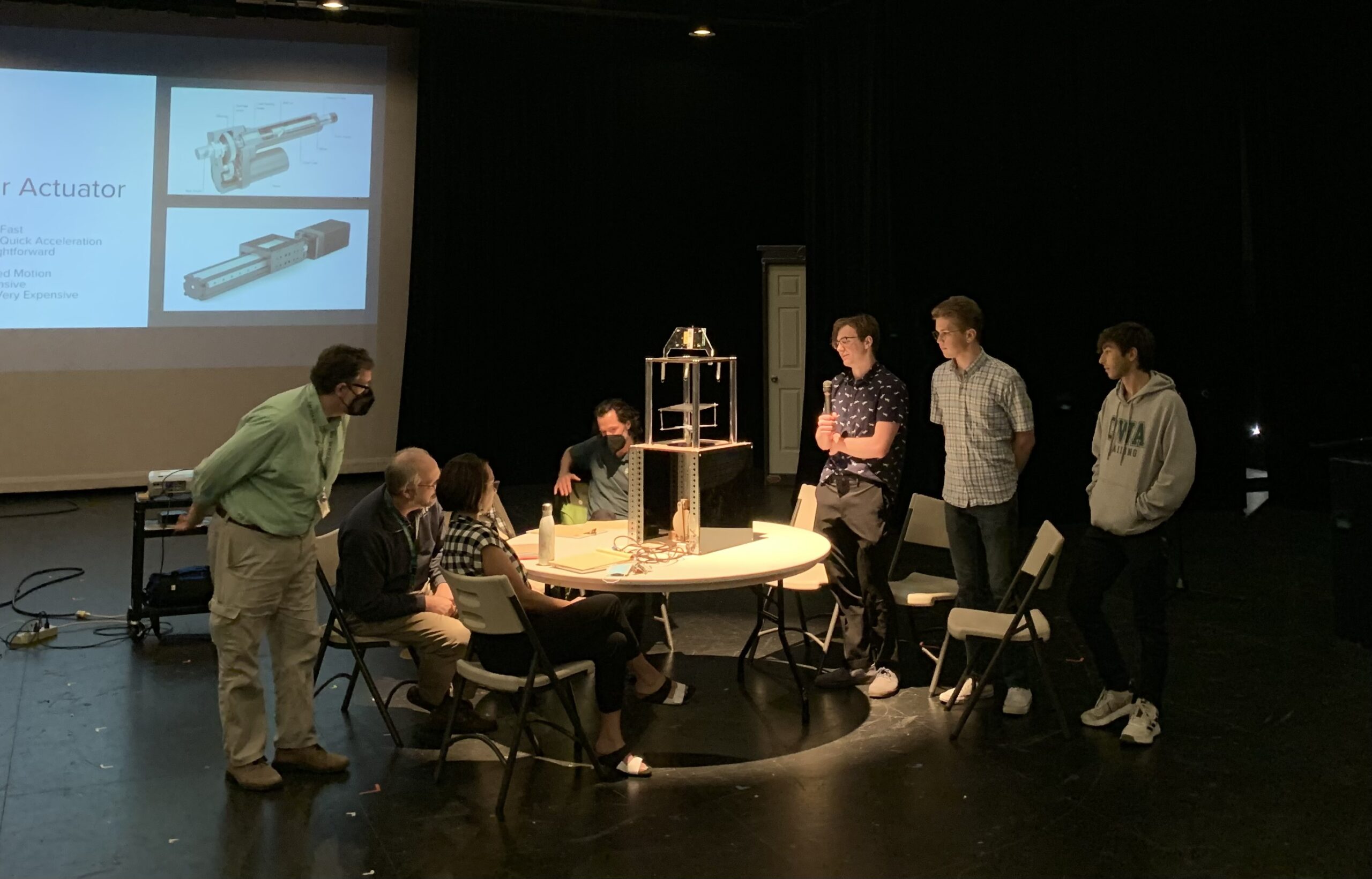History and Science Students Present Yearlong Research Projects
by Amy Senftleben
It’s no easy task to distill a year’s worth of research into 20 minutes and present it to faculty and peers for questioning, but that’s exactly what a large cohort of Charles Wright seniors accomplished recently as they defended their work to audiences in the Donn Laughlin Theater.
Upper School History Teacher Dr. Tom Cramer reflected, “Members of the Humanities Capstone Research seminar learned advanced research methodology and produced active contributions to problems of their own interest and design. Their topics included work on international relations, the impacts of social media on criminal justice, the influences of nineteenth-century spiritual mediums on the feminist movements, and many more.” Questions and engagement from the audience were highly encouraged to honor the work of each student.
As the date of presentations approached, Upper School Science Teacher Ryan Johnson also shared, “Students in Science Research have been working all year on a wide variety of topics and—after a full academic year of mastery and experimentation—are ready to defend their work in front of the science faculty.” Each student enjoyed a unique opportunity for round table discussion of their work with multiple science department faculty present, and their enthusiasm for and knowledge of their topics was evident. Science research topics ranged from nanopore formation to the effects of UV radiation on yeast fermentation.
Students at Charles Wright have unique opportunities to deeply explore topics of interest and share their work in a format typically reserved for college coursework. Igniting curiosity and teaching persistence, practice in advanced research prepares students to navigate the future with confidence as thinkers, innovators, collaborators, communicators, explorers, and stewards.
Congratulations to our senior researchers on an inspiring series of presentations.
Humanities Capstone Presentations:
- Emily C., “Masking of Military Sexual Assaults: The Laws and Environment That Enable Soldiers”
- Annie M., “Victorian Body Standards; Women Subject to the Standards of the 19th Century”
- Cedar O., “Mafia in the World of Film: The Social Implications of Mob Movies in American Culture”
- Paulina L., “The Unknown Truth: The Confluence of Cults and Social Media”
- Andy N., “The Week That Changed the World: The Consequences of Nixon’s Visit to China”
- Reece P., “A Foundation of Conspiracies: The Influence of Conspiracies, Human Trafficking, and Social Media on American Democracy in the Twenty-First Century”
- Kate P., “#SherlockHomes: Media’s Influence on the Criminal Justice System in the United States Throughout the Twentieth and Twenty-First Century”
- Jaden R., “Contacting the Spiritual Past: How 17th and 18th Century Spiritualism Influenced Feminism Throughout America”
- Kaixi Z., “The Price of Freedom: The Legislative Foundation of the Modern American Immigrant-Industrial Complex”
- Judy P., “Birth Control: The Freedom of Choice for Women”
Science Research Presentations:
- Lena M., “Emissions, Efficiency, and the Environment: Biodiesel vs Diesel”
- Jaden R., “Is Homegrown Spirulina the Key to Combating Climate Change?”
- Emily C., “The Effects of Aspartame on the Production of Gut Bacteria”
- Caitlyn O., “The Effects of UV Radiation on Yeast Fermentation.”
- Jonah B., “Nanopore Formation.”
- Liam F., “Caffeine and its Functionality as a Molluscicide to Banana Slugs.”
- Zoha A., “Examining the Impact of CaCl2 & MgCl2 Concentrations on Double Transformation Efficiency in E. coli.”
- Reed K., Cedar O., and Jaden U., “Swept-Volume Displays and Economical Holographic Technology.”




